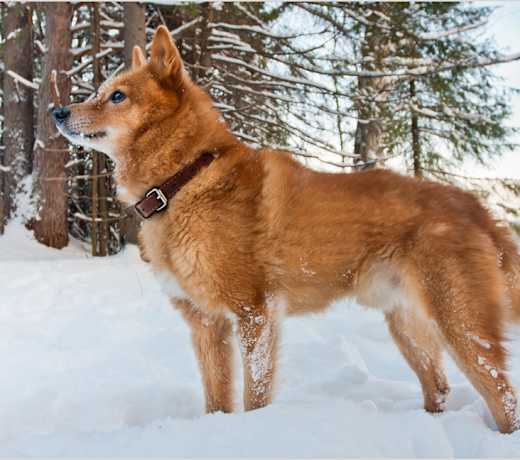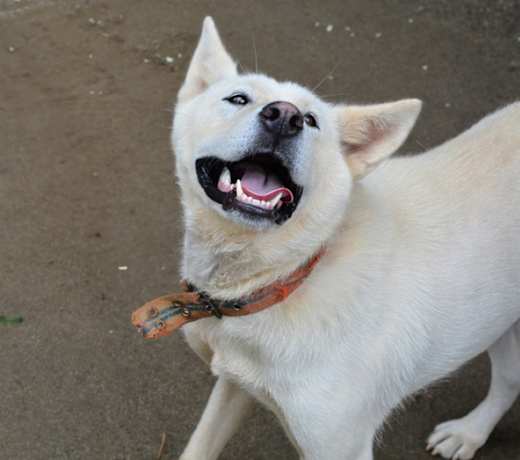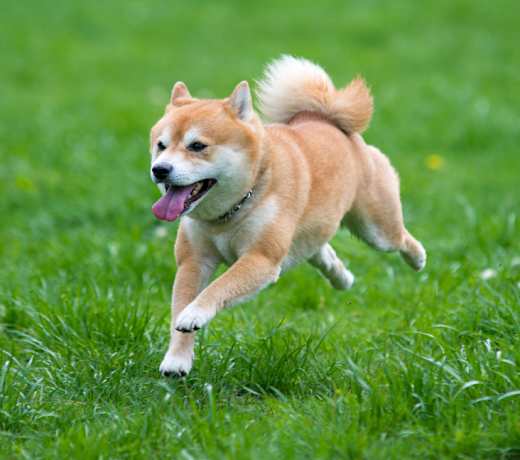The cost to adopt a Basenji from a rescue organization or animal shelter typically ranges from $150 to $600 in the United States. Adopting a Basenji costs much less than buying a puppy from a breeder, which can cost between $800 to $2,500 in the United States but varies based on factors including the breeder’s reputation, the dog’s pedigree, age, and health, and the state or country where you are purchasing the dog.
Adopt A Basenji
8 available Basenjis near you
Sort by:
Any
Any
Any

Penny
Basenji Labrador Retriever
Female, 7 yrs 5 mos
Beverly Hills, CA
Color
Tan/Yellow/Fawn
Size
(when grown) Large 61-100 lbs (28-45 kg)
Details
Not good with kids
Not good with dogs
Not good with cats
House-trained
Spayed or Neutered
Shots are up-to-date
Not good with dogs
Not good with cats
House-trained
Spayed or Neutered
Shots are up-to-date
Story
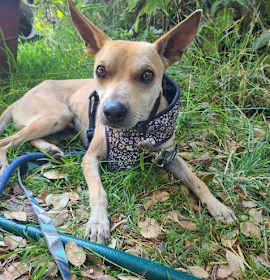
Sonny
Basenji
Male, young
Los Angeles, CA
Color
Red/Golden/Orange/Chestnut
Size
(when grown) -
Details
Good with dogs
Good with cats
House-trained
Spayed or Neutered
Good with cats
House-trained
Spayed or Neutered
Story

ANGEL
Basenji
Male, 3 mos
Van Nuys, CA
Color
Black - with White
Size
(when grown) Med. 26-60 lbs (12-27 kg)
Details
Spayed or Neutered
Story

BUFFY
Basenji
Female, 3 mos
Van Nuys, CA
Color
Brown/Chocolate - with White
Size
(when grown) Med. 26-60 lbs (12-27 kg)
Details
Spayed or Neutered
Story
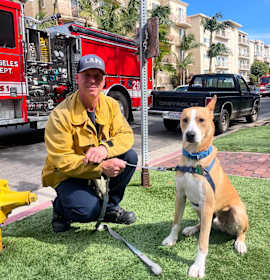
Caleb
Basenji Sheppit
Male, 2 yrs 2 mos
Los Angeles, CA
Color
Red/Golden/Orange/Chestnut
Size
(when grown) Med. 26-60 lbs (12-27 kg)
Details
Good with kids
Good with dogs
House-trained
Spayed or Neutered
Shots are up-to-date
Good with dogs
House-trained
Spayed or Neutered
Shots are up-to-date
Story
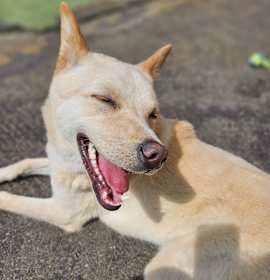
Milo (H)
Basenji Jindo
Male, 2 yrs 11 mos
Los Angeles, CA
Color
White - with Tan, Yellow or Fawn
Size
(when grown) Med. 26-60 lbs (12-27 kg)
Details
Good with dogs
House-trained
Spayed or Neutered
Shots are up-to-date
House-trained
Spayed or Neutered
Shots are up-to-date
Story
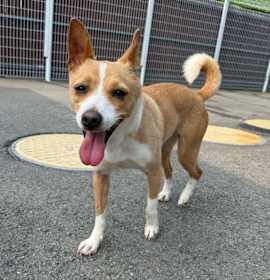
Camel
Basenji Terrier (Unknown Type, Small)
Female, 3 yrs 2 mos
Santa Clarita, CA
Color
White - with Tan, Yellow or Fawn
Size
(when grown) Small 25 lbs (11 kg) or less
Details
Good with dogs
House-trained
Spayed or Neutered
Shots are up-to-date
House-trained
Spayed or Neutered
Shots are up-to-date
Story

Rex
Basenji
Male, adult
Brea, CA
Color
Tan/Yellow/Fawn - with White
Size
(when grown) Small 25 lbs (11 kg) or less
Details
Good with kids
Good with dogs
House-trained
Spayed or Neutered
Shots are up-to-date
Good with dogs
House-trained
Spayed or Neutered
Shots are up-to-date
Story
1 - 8 of 8 pets available
Search for Basenji puppies and dogs
Find adoptable Basenji by Beverly Hills, CA
Basenji puppies near meBasenji in Agoura Hills, CABasenji in Alhambra, CABasenji in Anaheim, CABasenji in Arcadia, CABasenji in Artesia, CABasenji in Azusa, CABasenji in Baldwin Park, CABasenji in Bell, CABasenji in Bellflower, CABasenji in Bell Gardens, CABasenji in Brea, CABasenji in Buena Park, CABasenji in Burbank, CABasenji in Calabasas, CABasenji in Camarillo, CABasenji in Carson, CABasenji in Cerritos, CABasenji in Commerce, CABasenji in Compton, CABasenji in Covina, CABasenji in Cudahy, CABasenji in Culver City, CABasenji in Cypress, CABasenji in Diamond Bar, CABasenji in Downey, CABasenji in Duarte, CABasenji in El Monte, CABasenji in El Segundo, CABasenji in Fullerton, CABasenji in Gardena, CABasenji in Garden Grove, CABasenji in Glendale, CABasenji in Glendora, CABasenji in Hawaiian Gardens, CABasenji in Hawthorne, CABasenji in Hermosa Beach, CABasenji in Huntington Beach, CABasenji in Huntington Park, CABasenji in Inglewood, CABasenji in La Canada Flintridge, CABasenji in La Habra, CABasenji in La Habra Heights, CABasenji in Lakewood, CABasenji in La Mirada, CABasenji in La Palma, CABasenji in La Puente, CABasenji in Lawndale, CABasenji in Lomita, CABasenji in Long Beach, CABasenji in Los Alamitos, CABasenji in Los Angeles, CABasenji in Lynwood, CABasenji in Malibu, CABasenji in Manhattan Beach, CABasenji in Maywood, CABasenji in Monrovia, CABasenji in Montebello, CABasenji in Monterey Park, CABasenji in Moorpark, CABasenji in Norwalk, CABasenji in Palos Verdes Estates, CABasenji in Paramount, CABasenji in Pasadena, CABasenji in Pico Rivera, CABasenji in Pomona, CABasenji in Rancho Palos Verdes, CABasenji in Redondo Beach, CABasenji in Rolling Hills Estates, CABasenji in Rosemead, CABasenji in San Dimas, CABasenji in San Fernando, CABasenji in San Gabriel, CABasenji in San Marino, CABasenji in Santa Clarita, CABasenji in Santa Fe Springs, CABasenji in Santa Monica, CABasenji in Seal Beach, CABasenji in Sierra Madre, CABasenji in Signal Hill, CABasenji in Simi Valley, CABasenji in South El Monte, CABasenji in South Gate, CABasenji in South Pasadena, CABasenji in Stanton, CABasenji in Temple City, CABasenji in Thousand Oaks, CABasenji in Torrance, CABasenji in Walnut, CABasenji in West Covina, CABasenji in West Hollywood, CABasenji in Westlake Village, CABasenji in Westminster, CABasenji in Whittier, CA
Animal shelters near Beverly Hills, CA
Dog shelters near meDog shelters in Agoura HillsDog shelters in AlhambraDog shelters in AnaheimDog shelters in ArcadiaDog shelters in ArtesiaDog shelters in AzusaDog shelters in Baldwin ParkDog shelters in BellDog shelters in BellflowerDog shelters in Bell GardensDog shelters in BreaDog shelters in Buena ParkDog shelters in BurbankDog shelters in CalabasasDog shelters in CamarilloDog shelters in CarsonDog shelters in CerritosDog shelters in CommerceDog shelters in ComptonDog shelters in CovinaDog shelters in CudahyDog shelters in Culver CityDog shelters in CypressDog shelters in Diamond BarDog shelters in DowneyDog shelters in DuarteDog shelters in El MonteDog shelters in El SegundoDog shelters in FullertonDog shelters in GardenaDog shelters in Garden GroveDog shelters in GlendaleDog shelters in GlendoraDog shelters in Hawaiian GardensDog shelters in HawthorneDog shelters in Hermosa BeachDog shelters in Huntington BeachDog shelters in Huntington ParkDog shelters in InglewoodDog shelters in La Canada FlintridgeDog shelters in La HabraDog shelters in La Habra HeightsDog shelters in LakewoodDog shelters in La MiradaDog shelters in La PalmaDog shelters in La PuenteDog shelters in LawndaleDog shelters in LomitaDog shelters in Long BeachDog shelters in Los AlamitosDog shelters in Los AngelesDog shelters in LynwoodDog shelters in MalibuDog shelters in Manhattan BeachDog shelters in MaywoodDog shelters in MonroviaDog shelters in MontebelloDog shelters in Monterey ParkDog shelters in MoorparkDog shelters in NorwalkDog shelters in Palos Verdes EstatesDog shelters in ParamountDog shelters in PasadenaDog shelters in Pico RiveraDog shelters in PomonaDog shelters in Rancho Palos VerdesDog shelters in Redondo BeachDog shelters in Rolling Hills EstatesDog shelters in RosemeadDog shelters in San DimasDog shelters in San FernandoDog shelters in San GabrielDog shelters in San MarinoDog shelters in Santa ClaritaDog shelters in Santa Fe SpringsDog shelters in Santa MonicaDog shelters in Seal BeachDog shelters in Sierra MadreDog shelters in Signal HillDog shelters in Simi ValleyDog shelters in South El MonteDog shelters in South GateDog shelters in South PasadenaDog shelters in StantonDog shelters in Temple CityDog shelters in Thousand OaksDog shelters in TorranceDog shelters in WalnutDog shelters in West CovinaDog shelters in West HollywoodDog shelters in Westlake VillageDog shelters in WestminsterDog shelters in Whittier
Adopting a Basenji
Frequently asked questions about acquiring an Basenji - the pros and cons of adopting versus going through a breeder, and associated costs.
The easiest way to adopt a Basenji is through a breed-specific rescue organization that specializes in Basenjis. A great place to start is creating a breed search on Adopt a Pet. The search will show you all the available Basenjis in your area.

